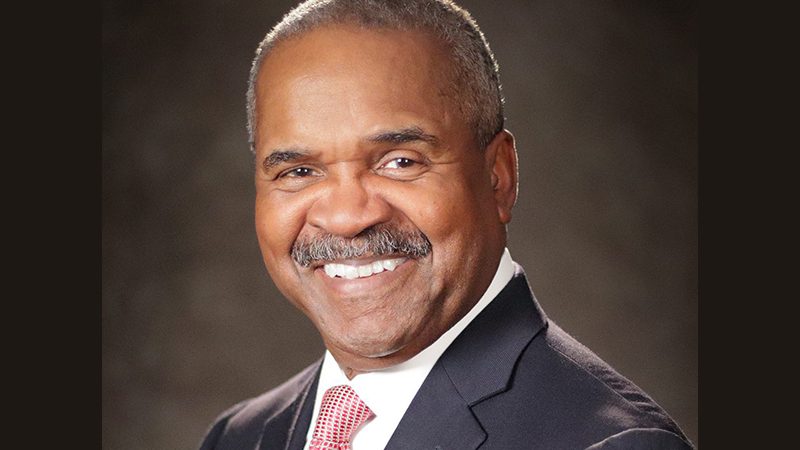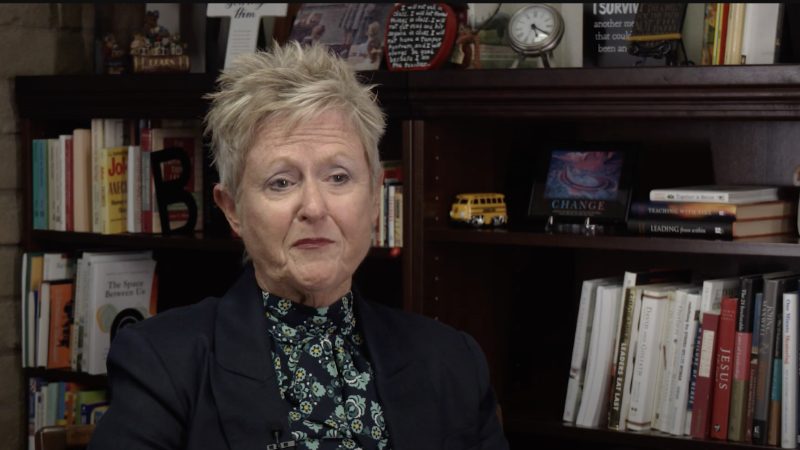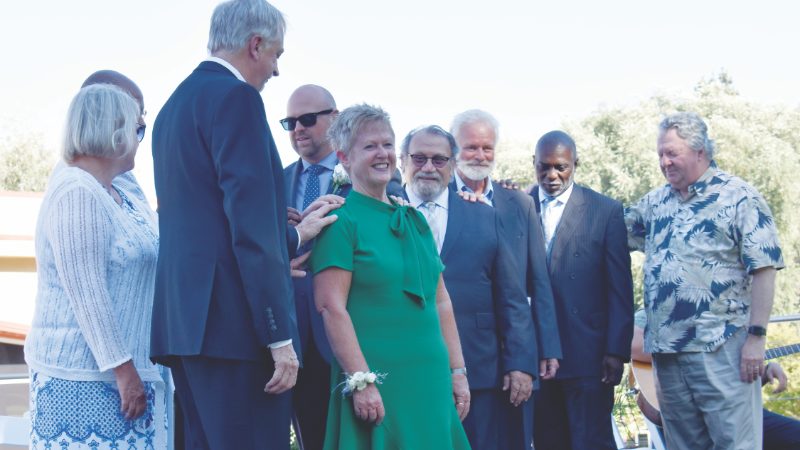As a child I joined other church members in Orange, California, to participate in Harvest Ingathering. We gathered in the fellowship hall, chose a colorful donation can and a stack of brochures, divided into small groups, and then dutifully piled into a car to head to our “territory.” Exiting the warm vehicle, I was met by the chill of the night air. The King’s Heralds Christmas songs boomed out of the loudspeaker on top of the car, and I started ringing doorbells. When the door opened, I would nervously announce, “I am collecting Christmas dollars for the poor and needy.” I was always hopeful when I walked up to a home decorated with colorful lights.
In my memory I still see myself standing at the door of a smiling lady who graciously went to get her purse for a donation. Peering inside the open door like any curious kid would do, I noticed the flickering screen of a color television. Since my family didn’t own a television, the image was mesmerizing. Filling the screen was the recently released “A Charlie Brown Christmas.” In my short time at the door, I watched Linus quote the story of Jesus’ birth in Luke 2 and close with, “And that’s what Christmas is all about, Charlie Brown.” The nice lady returned to the door and placed her dollar in the colorful donation can. I thanked her and dashed off to the next house.
Harvest Ingathering is now a long-gone practice, but I return every Christmas season to the angelic testimony on the night of Jesus’ birth: “Glory to God in the highest, and on earth peace, goodwill toward men!” (Luke 2:14). What was meaningful to us as children at Christmas can be easily displaced by the complexity of making a living, paying bills, raising children or grandchildren, and coping with life’s uncertainties. That angelic song can indeed seem distant when we suffer the loss of someone we love. Some can ask at this Christmas season the question, “What song is there for us now?”
At this Christmas season, the third song of Revelation provides a lyric of confidence that our God in heaven reaches personally to our present and future with nail-pierced hands of understanding and compassion.
It is a surprise to some that the Bible is filled with an abundance of song lyrics. Excluding the obvious collections in the Book of Psalms, we may pass these songs by with a mere glance, assuming they are just background music to the important history, doctrinal teaching, and prophetic timelines that occupy our attention. Some of the more familiar songs are in the form of prayers like that of Hannah (1 Samuel 2), songs like those of Mary and Zacharias (Luke 1), and a theology of the Incarnation (Philippians 2).
As I read the book of Revelation—so central to our understanding of ourselves and the cosmic plan of salvation—I count 12 distinct songs that amplify and illuminate the actions of God on earth and the wider universe. I have discovered that to study and reflect upon these heavenly compositions brings deeper meaning to the entire message of “The Revelation of Jesus Christ.” One of these spiritually rich songs stands out to me for this Christmas season because it provides a deeper meaning to the song that the shepherds heard that night.
In chapters 4 and 5 of Revelation, we read John’s eyewitness description of the center of God’s government and the problem facing the universe. Beginning in chapter 4, John looks through an open door that reveals God’s cosmic work for humanity and all of creation. With him we view God enthroned amidst a whirl of activity—24 “elder” human beings, lamps burning with the “seven Spirits of God,” and four unearthly creatures. They all join a recurring loop of song that praises the One on the throne: “For You created all things, And by Your will they exist and were created” (Revelation 4:11). This is a picture of God’s sustaining gift of life to all and His sovereignty over the affairs of the universe.
The throne room now faces a crisis. The scroll with seals is closed, and its contents cannot be known or understood. The future unfolding of human history is in the balance because “no one in heaven or on the earth…was able to open the scroll, or to look at it.” (Revelation 5:3). The entire fate of humanity and the universe itself is on the line, and there is no worthy being to unlock the meaning and future of all creation. John responds with despair: “So I wept much” (verse 4).
It is then with a voice of triumph that one of the human elders testifies, “Do not weep.” The Lion and Root “has prevailed” (verse 5). The sudden arrival of these hopeful words merges with the sight of the slain Lamb. I imagine these simultaneous symbolic representations forming a type of hologram that appears, fades into the next image, and then to the next one, repeatedly (verses 5-7). This is a Lamb on the move! He grasps the scroll and begins to tear off the seals to reveal history that is moving at an unrelenting pace to the endgame of the great cosmic conflict.
At this Christmas season, the third song of Revelation provides a lyric of confidence that our God in heaven reaches personally to our present and future with nail-pierced hands of understanding and compassion. We are not left with a mere sentiment from the past. This is the new song of a new covenant between heaven and earth, established by the triumphant death and resurrection of Jesus. Then it moves beyond heaven to speak to our daily trials and struggles to both live for God now and to have confidence for an everlasting life with Him.
The song of the Worthy Lamb pushes aside the commercial holiday season to grasp anew the gift of the incarnate Savior. Through eyes of faith, we can join the chorus singing the heavenly lyrics composed in the throne room of God (Revelation 5:9-10). Let us add our voices to this immense symphony of praise:
You are worthy for You were slain, (It’s all about Jesus!)
And have redeemed us to God by Your blood (He died and rose for you!)
Having made us kings and queens and a priesthood serving God; (You are transformed by Him!)
And we shall reign on the earth. (You have a boundless future!)
Amen and Amen (So it is and shall be!)
_____________________________
Bradford C. Newton is the president of the Pacific Union Conference.
All Scripture quotations are from the New King James Version.







